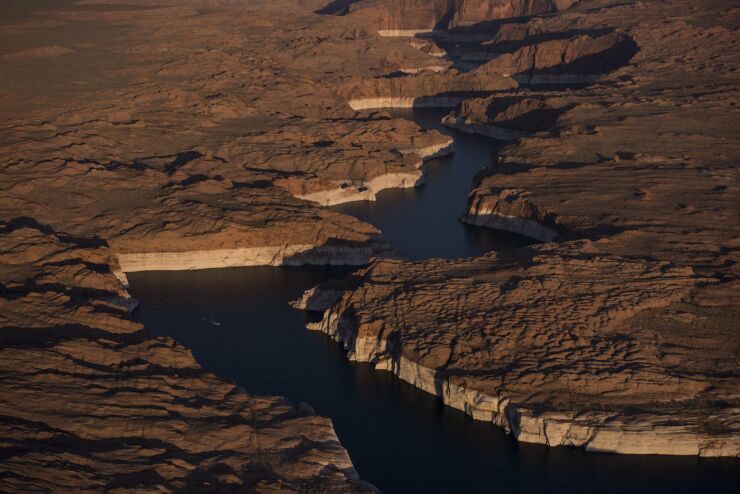A controversial proposed pipeline to carry Colorado River water to the southwest corner of Utah is under attack from conservation groups that are urging the federal government to cancel the project.
The Lake Powell Pipeline would transport as much as 83,700 acre-feet of water per year from the Lake Powell reservoir to Washington County, Utah, through an approximately 140-mile buried pipeline
Various financing options are under consideration for the pipeline, which is estimated to cost as much as $2.2 billion in 2020 dollars. Utah's state treasurer has said

In
"Each minute wasted on this pipeline sham comes at the cost of real solutions that the Colorado River's communities and endangered fish desperately need for survival," Taylor McKinnon, southwest director at the Center for Biological Diversity, said in a statement. "It's time for the Interior Department to pull the plug on the Lake Powell Pipeline."
The Colorado River, which supplies water to 40 million people in seven states, has seen water levels in its reservoirs drop in recent years due to drought conditions, leading the U.S. Bureau of Reclamation to declare shortages. Storage in Lake Powell has improved this year with 8.62 million acre feet of water in November, compared to 5.72 million acre feet in November 2022, according to bureau data.
"The (pipeline) is incompatible with sustainable Colorado River policy, it is incompatible with the Bureau of Reclamation's direction calling upon Colorado River Basin states to cut 2-4 million acre-feet from the system, and we believe the Bureau of Reclamation should not be permitting a project that would further reduce the Colorado River water supply," the letter from nine conservation groups said.
They also noted that alternatives to the pipeline are being considered by the Utah county.
The Washington County Water Conservancy District released
As a result, potential alternatives for future water supply, including enhanced conservation measures, were being reevaluated, it added.
In response to emailed questions, Karry Rathje, a spokesperson for the pipeline, said the project's environmental analysis is expected to resume once negotiations with Colorado River users over post-2026 operations conclude.
"Utah will live within its hydrologic allocation, whatever that may be," Rathje said. "The LPP will not exceed Utah's share of Colorado River water."
Earlier this year, California, Arizona, and Nevada





